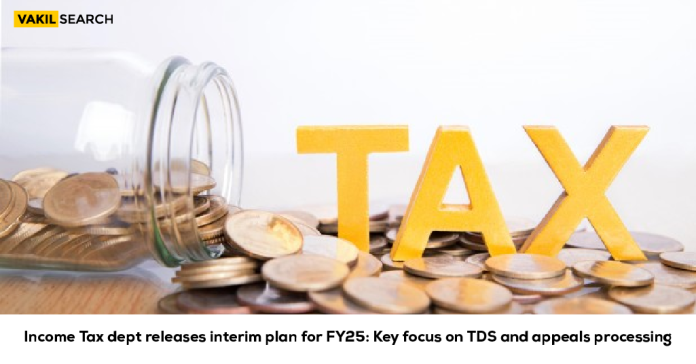The income tax department has rolled out an interim action plan for the fiscal year 2024-25, spotlighting crucial areas like identifying TDS short-payments and streamlining appeals processing.
With a sharp focus on efficiency, the plan outlines deadlines for refund approvals, asset releases, and compounding proposals. Notably, cases awaiting seized asset release are slated for resolution by June 30, 2024.
Central to the plan is the expedited handling of appeals filed pre and post-April 1, 2020, with a target of resolving at least 150 appeals by June 30. Pending compounding proposals as of March 31, 2024, are to be swiftly finalised.
Sandeep Sehgal, Tax Partner at AKM Global, lauded the initiative as a stride towards efficient tax administration. He noted the CBDT’s commitment to addressing grievances promptly through digital platforms like e-Nivaran and CPGRAM.
Sehgal remarked, ‘Taxpayers are now required to file applications before the assessing officer for pending refunds pertaining to their respective assessments.’ This proactive stance aims to expedite refunds, offering significant relief to taxpayers and enhancing administrative efficiency.
Furthermore, the plan aims to expedite the resolution of Nil/Lower TDS or TCS Certificates applications within a month of receipt from April 1, 2024, easing taxpayers’ cash flows. Audit objection resolutions are prioritised, with a target to resolve major and minor objections by June 30, 2024.
The proactive measures drew praise from Sehgal for their potential in revenue generation and fostering a culture of compliance. He emphasised the government’s commitment to bolstering taxpayer confidence and ease of compliance.
Aravind Srivatsan, Tax Leader at Nangia Andersen, underscored the plan’s comprehensive approach to tax collections, dispute resolution, and data management for effective fiscal governance.
‘The detailed nature of the guidelines reflects meticulous planning across various fronts. Ultimately, these directives aim to ensure business continuity, adherence to tax collection targets, and prudent fiscal management,’ Srivatsan remarked. In essence, the plan seeks to safeguard tax collection and minimise the need for additional borrowing.
The income tax department’s action plan signals a proactive stance towards enhancing administrative efficiency, fostering taxpayer confidence, and bolstering fiscal management in the coming fiscal year.



